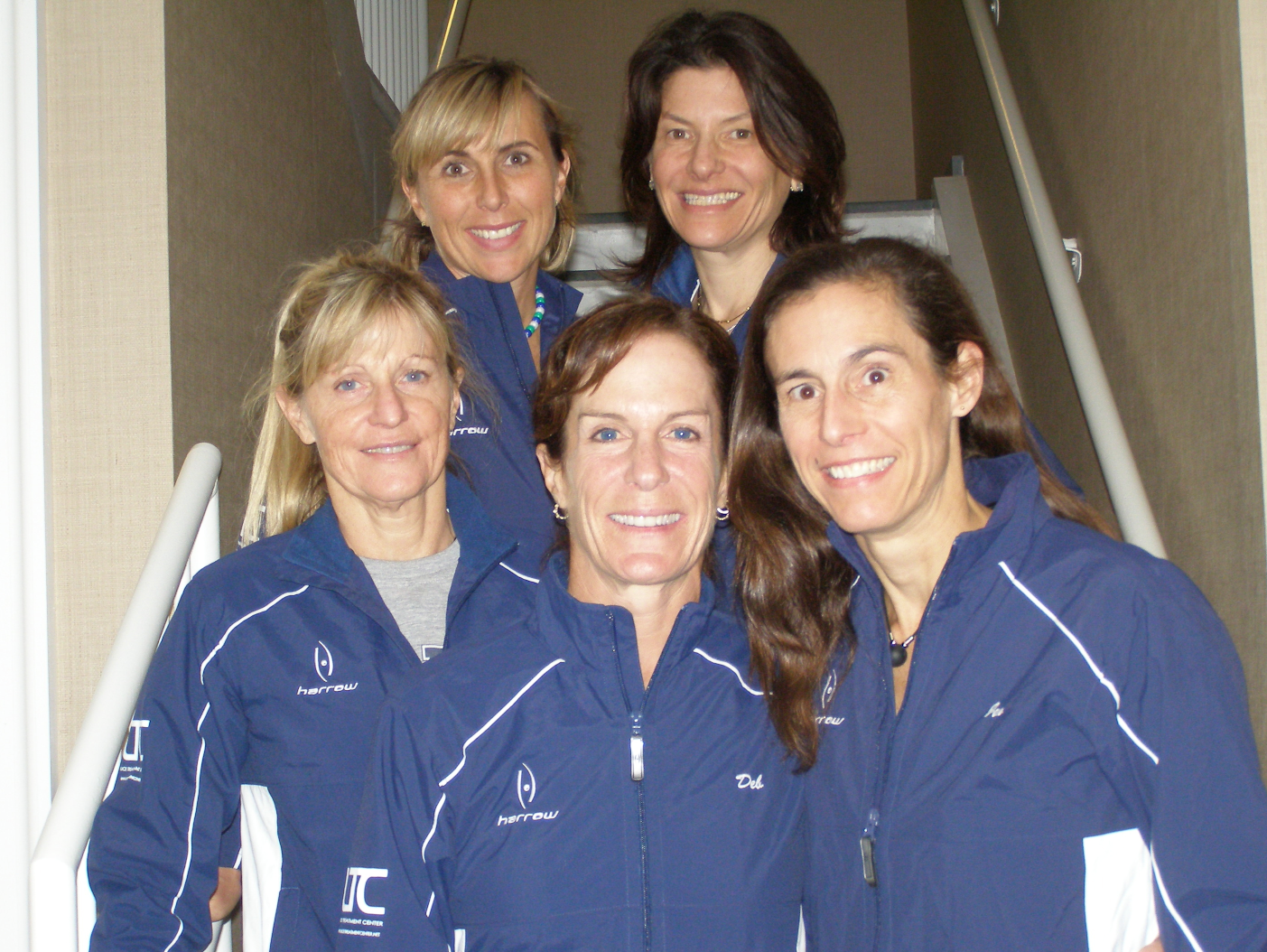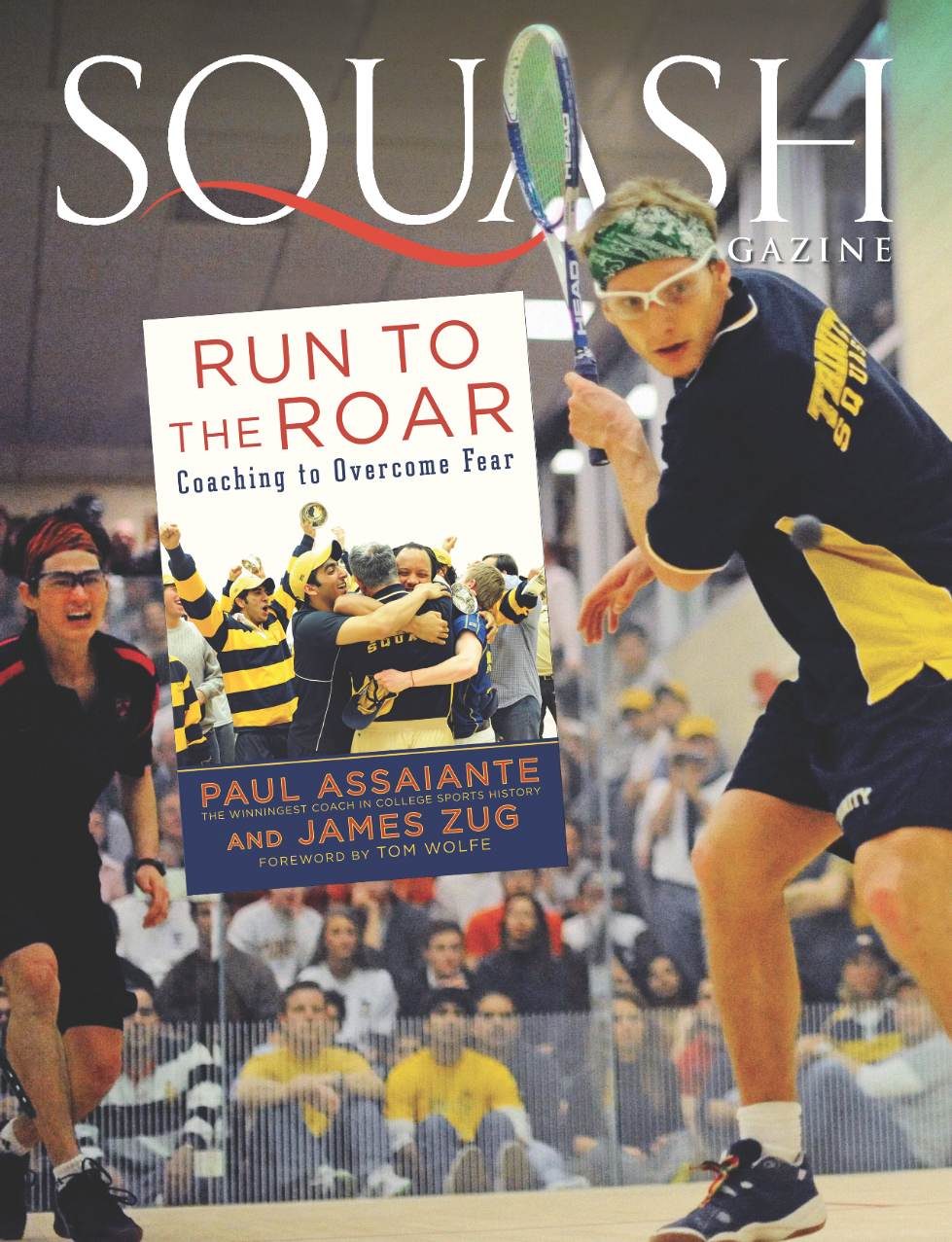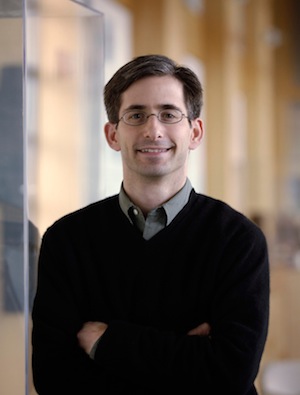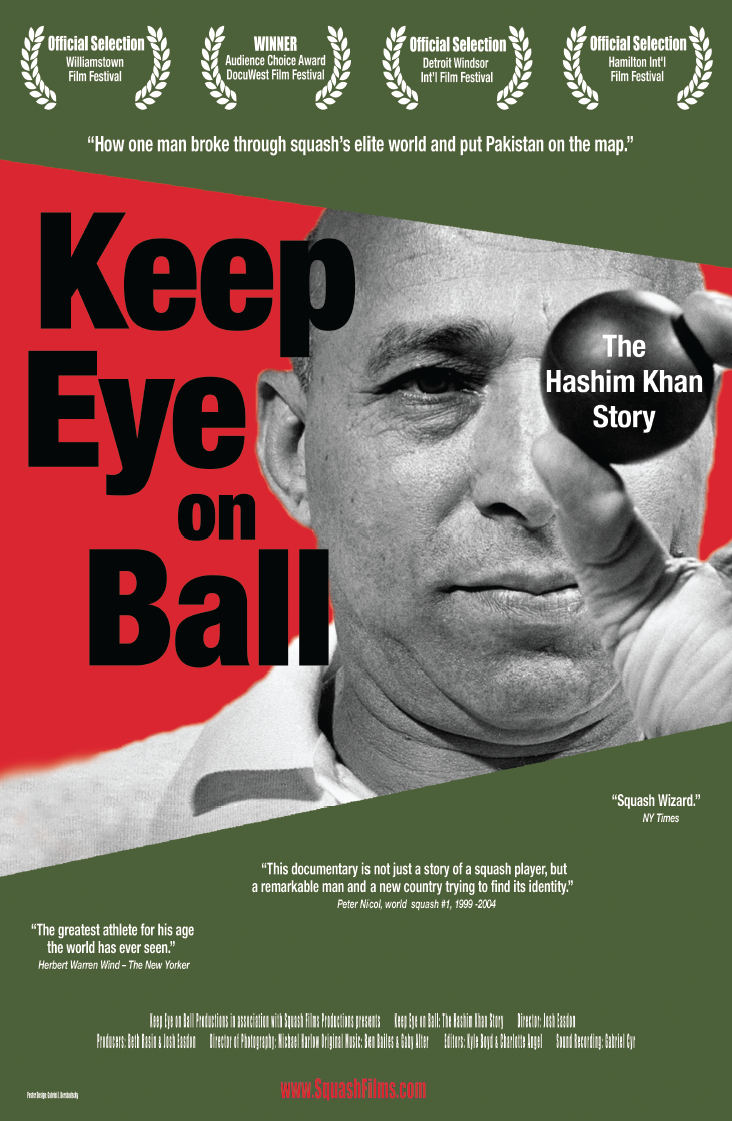Articles and Photos by Beth Rasin

Howe Cup, the singular not-to be missed tournament on the women’s squash calendar, lived up to its billing once again as the 2010 edition featured 39 teams of five singles player each, 15 doubles teams and the most fun you can have during a squash weekend. Play began at 8AM on Friday, November 5, at the Apawamis Country Club, Rye Country Day School and Westchester Country Club and, when the dust settled on Sunday afternoon, Howe Cup trophies had been claimed by four different cities.
The camaraderie of Howe Cup has always been one of its defining elements and 2010 was no exception. This year, it was the Howe Cup connections that stood out as players who hadn’t seen each other in 20 and 30 years joyfully reconnected. Even less than six degrees of separation connects most of the Howe Cup Squash players to each other.
No better place to start than tournament organizer Jen Gabler, who has thrown herself wholeheartedly into strengthening the US women’s squash community. Jen learned to play squash at Dartmouth from coach Aggie Kurtz. “It is so much fun to be here and be with so many squash friends I haven’t seen in years,” said 69-year-old Aggie Kurtz, playing Howe Cup doubles with Dale Walker, the former Yale coach.
Aggie was one of the organizers of the 1972 Howe Cup at the New Haven Lawn Tennis Club. Canadian Penny Glover, a member of this year’s C finalist team, the Canadian Capital Girls, was on a winning team in that 1972 championship. Penny last saw Wendy Berry, the current Wellesley coach who teamed with Susan Greene in doubles, 29 years ago on a squash jaunt to Sheffield, England. Susan played on the 1989 and 1993 Maccabiah squash teams with Jane Segall and Liz Solovay, Jen Gabler’s teammates in this year’s Howe Cup. And so it goes—a diagram that maps all the Howe Cup squash players’ relationships to each other would be a maze of crossed lines and connections. When the competition is done and all the trophies have been handed out, those connections are the true essence of Howe Cup.
Philadelphia A Players Takes A Home Multiple Trophies
The Philadelphia juggernaut was not be denied its first Howe Cup A trophy since 1995. With three current teaching and former WISPA pros—Carrie Hasting, Tina Rix and Ileana Novelo, one Hall of Famer (Demer Holleran), and a former Jamaican National champion (Sue Lawrence)—the Philly A team dropped only one individual match en route to the title. California’s Kim Clearkin may have summed up the Philly opponents’ feelings just before her match with Demer Holleran, “My goal is to be on the court for more than six minutes.” Four of the five team members augmented their trophy collection with additional silverware awarded during the weekend.
“I’m [bleeping] knackered,” said Howe Cup first-timer Carrie Hastings good-naturedly after playing the last of her nine Howe Cup matches. Philly’s No. 1 player, who hails from Cambridge (England) and is now coaching at the Merion Cricket Club, paired with Philly No. 2 Tina Rix to win the A doubles trophy as well. The English-born duo swept through round robin play without losing a game, but in the finals, fell behind early to the sister act of Marie Vlcek and Katherine Rowan. The eventual champions, who will be playing the WSDA circuit this year, regrouped to win in four games to add the second trophy to their weekend take. Three was the lucky number for Rix, who coaches at Episcopal Academy and has been loving life in the US since she moved here four years ago from Hampshire, England. “It is especially nice to win the Howe Cup team singles championships after being a runner-up a twice,” she said with a big smile after receiving the permanent trophy on behalf of her team.

Sue Lawrence, who also played both singles and doubles, touched her hand to her heart as she received the Feron’s Wedgewood Sportsmanship Award. The silver bowl is presented annually to the female player who has shown exemplary sportsmanship on and off the court throughout the season. Sue, who started playing squash in her native Jamaica, moved to England in her 20s in search of better competition; she lived in Florida and Boston before landing in her current hometown of Philadelphia, where she is a physical therapist. In each city, she has endeared herself to the squash community by suffusing her competitive spirit with grace and good humor.
Demer Hollernan has now won just about every award there is to be won in squash. In addition to her 31 national titles in singles and doubles, being a member of the winning Howe Cup team, a prior recipient of the Sportsmanship Award and a member of the US Squash Hall of Fame, Demer added the Achievement Bowl to her collection of trophies to be polished. Demer has added the role of squash entrepreneur to her multi-faceted squash resume which includes her illustrious playing career and her stint as coach of the UPenn women’s team.
Demer realized her vision of an expansive squash facility when she developed the Fairmount Athletic Club in King of Prussia (PA) with 12 singles court, two doubles courts and a comprehensive fitness facility. Fairmount has hosted Howe Cup as well as various national singles and doubles championships. Last summer, Demer created the inaugural Squash Showcase to provide college coaches with an opportunity to see promising high school players in action under one roof. As she received the ultimate women’s squash award, Demer gave a shout out to the D players. “As I look at all the players assembled here for Howe Cup, I think the D players may be the luckiest,” said, perhaps a bit wistfully, the woman who has achieved just about everything one can in squash. “You still have so much you can achieve in this sport that we all love.”
Southport Squashettes Nab B Singles Honors; Minnesota Grabs Doubles Crown
In the 16 team B division, the Southport Squashettes squashed their competition en route to the title, losing only two individual matches all weekend. It was a team of tried and true competitive veterans. “We call ourselves the granny team,” said number one Jane Segall, a “never say die” player who has won five national age group titles. “We brought Marie Vlcek onto the team to lower our average age.” Marie cut her squash teeth in Atlanta and is now a teaching professional and a stalwart of the women’s doubles tour; she also helped with tournament organization.
Liz Solovay was a top 20 intercollegiate player at Yale in the mid-80s and is the owner of The Lice Treatment Center, the team sponsor. Debbie Hodes, whose last tournament was 14 years ago, played for Princeton and was a top ten player on the women’s hardball squash circuit in the 1980s. Hodes, who battled a series of illnesses for several years, enjoyed being back on court, even if she did pull a muscle in her last match. “The best part has been seeing all my old friends,” said Hodes, “and discovering a new sport—squash doubles.”

Jen Gabler played for Dartmouth where she learned the game from Aggie Kurtz. As Kurtz watched Gabler battle Philadelphia’s Sara Smythe in the finals, she recalled Gabler’s early days as a squash player. “Jen’s playing style can be a bit awkward,” Kurtz said, “and I was questioned as to why I was keeping her on the team. It was simple really—whatever I told Jen to do she did. And in her senior year, at the No. 7 spot, she was undefeated.” Gabler displayed the same tenacity in the match with Smythe, who had to win a five-game battle in the semifinals to get her Philadelphia team into the B finals. Down 1-2, Gabler calmly held fast, covering all corners of the court and forcing errors from her opponent to clinch the Cup for her team by winning the last two games 11-7, 11-1. And that’s on top of organizing the whole Howe Cup weekend!!!
After her extended five game match with Gabler, Sara Smythe rushed off to the doubles court to play the B doubles final with Beth Fedorowich, one of two Pittsburgh players who had made their way to Rye for Howe Cup. The combination of Fedorowich’s speed and court coverage and Smythe’s lanky reach were too much for their Minnesota opponents Kren McManus and Kitty Higginbotham. Smythe and Fedorowich captured the B doubles crown in three straight games.
Canadians Clinch Cs
Four Canadian teams found their way to Rye (NY) for Howe Cup competition—and one of them, the Georgetown (Ontario, Canada) team, took top honors in the 13 team C division. Even before they won the trophy, the team was delighted with their Howe Cup venture. “This is a really wonderful experience,” said Kate Switzer at the famed Saturday night party. “Everyone is so welcoming and everything has been so well organized.”

The team’s toughest competition came from their own countrywomen, the Capital Girls, whom they defeated 3-2 in semifinal play. The champions downed the Green Witches of Connecticut, 4-1, toppled DC SquasherGrrrls 5-0, upended NYC1 4-1 and bageled California 5-0 to take the Howe Cup trophy over the border. “We’ll definitely be back,” said Switzer.
Boston Wins Ds
The closest championship finish was in the Ds where Boston edged out California on games won to secure top honors. Both teams finished with a 3-1 record in round robin play, and Boston came out on top by virtue of having won more games—15 to California’s 12. Sherry McAdams and Dara Lynn Pelechatz were both undefeated for the weekend. Pelechatz, playing in her first Howe Cup, said, “I feel like a kid in a candy store. I can’t wait to come back next year.” Coleen Philamore, who has been on the winning team in each of her two Howe Cup competitions, and team captain Sarah Lemaire, were asked what the weekend highlights were. “Crashing a wine tasting party,” the two agreed laughing. “Playing with the girls from StreetSquash was really wonderful,” Coleen added. For Lemaire, it was “making it through all four matches without breaking down.”

———
Mapping Art and Squash

Dawn Gavin started playing squash at age 11 in her hometown of Glasgow (Scotland) and last played a squash tournament in 1990. She gave up playing when she went to art school but her connection to the sport was visceral. “In my head, I have never left squash,” says the Associate Professor of Art at the University of Maryland. “Intellectually it has always informed what I do.”
What Gavin does is art installations on walls. For her, the squash court is a large drawing and the marks on the walls and the movement on court is incorporated in her art. Just 20 miles from the Howe Cup tournament site, Gavin’s work is on display at the Katonah Museum of Art in an exhibition titled “Mapping—Memory and Motion in Contemporary Art.” She deconstructs mapping by using hole punched map fragments and 15,000 pins to create her wall images which often involve circular forms like the ball marks on the walls.
As Gavin pursued tenure in the academic world, she became increasingly unfit and joined The Meadow Mill Club in Baltimore a few years ago to get back in shape. Her return to squash play was about more than physical activity. “The noise and sound of the squash court is reassuring to me,” says Gavin.”I am not as homesick now that I have returned to playing.” She has especially enjoyed her Howe Cup experience. “Squash players are so generous and the Baltimore C team has been incredibly supportive,” the 42-year-old reflects. “The return to competition has lit up parts of my brain that have been dormant for decades.”
StreetSquash Girls
Howe Cup competition was enlivened this year by the participation of several high school girls from StreetSquash, the urban squash and youth enrichment program located in Harlem. When the NYC women started organizing themselves for Howe Cup, they arranged to practice at the Street Squash courts and invited girls from the program to join the teams. The girls selected for the NYC teams were those who showed up consistently to practice. It was a learning experience on many levels.
“When I first started practicing, I didn’t want to hit drop shots against one of the players because she was older,” said 13-year-old Gabrielle Tobias. “But then she got to my drop shots—and she showed me new tricks.” The older player is Dinah Day, who has five decades on her Howe Cup teammates from StreetSquash. Mawa Ballo, also 13, chimed in, “Dinah taught us how to hit really high lobs.”
Taylor Cook, 14-years-old and a three year veteran of the StreetSquash program, found that she learned a lot from John Musto, who coached all the NYC teams. “He taught us how to break down shots,” she said. Sugeiry Betances, a 16-year-old high school senior who expects to play college squash, added, “John did so much talking before we played and then his words stayed in our head during matches. I learned how to attack more on court.”

All the girls embraced the Howe Cup challenge. “Playing with so many different people, we didn’t know what to expect,” said Gabrielle. “It really made us stay on our toes.” Taylor added, “It was different than what we were used to.” The round robin format was new to the girls—but they loved being able to continue playing, win or lose.
With squash as their common ground, the StreetSquash players bridged the age and background differences pretty quickly. All the girls agreed that it was a very special experience. “It has been great to network and meet new people,” says Mawa. “We are all women so we can relate to each other.” Gabrielle was enthusiastic about the opportunities presented to her by StreetSquash, “When you get to see all that the world has to offer, you want to go out and try new things.” In summing up how she feels about her StreetSquash experience, Surgeiry reflected the feelings of the more than 200 Howe Cup participants. “Squash—you know it; you love it; you breathe it.”
The Jamaica Connection
Twins Astrid and Gwyneth Terry were born in England and spent their formative years in Jamaica, where they learned to play squash at age 10. “Our Dad played squash and for us, it was better than tennis which was played in the hot sun,” says Astrid. They moved to California for college. Astrid enrolled at UC Santa Cruz while Gwyneth chose Cal State. When they moved to the Bay area they resumed playing squash, and have played in several Howe Cups.
After arriving at Apawamis for this year’s tournament as members of the California B team, they spied a familiar face—but one they hadn’t seen in 25 years. The twins looked at each other and asked, “Is that Sue Lawrence?” Much to their delight it was. Sue was equally thrilled to re-connect with the twins.

Turns out that Sue, the then-reigning Jamaica National Champion and All Caribbean Champion, and 24 years-old at the time, was helping coach the Jamaica juniors. Astrid and Gwyneth, 14- year -old teenagers, played for the Junior National Team and were enrolled in the summer program Sue was coaching. “She was a squash goddess,” Gwyneth recalled. “We would follow her all around the club.”
After that summer, Sue left Jamaica for England so that she could play at an even higher competitive level, and then the Terrys made their way to California. Re-connecting with each other again a quarter of a century later was a Howe Cup highlight for all of them.





